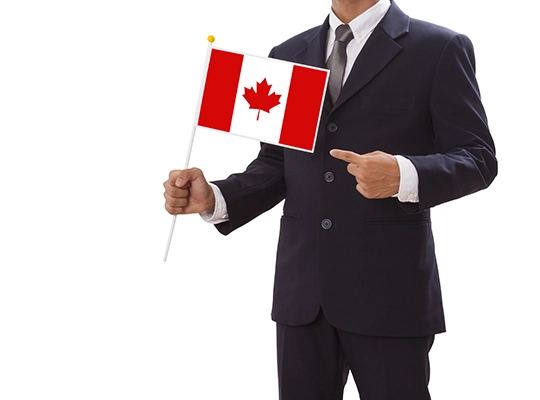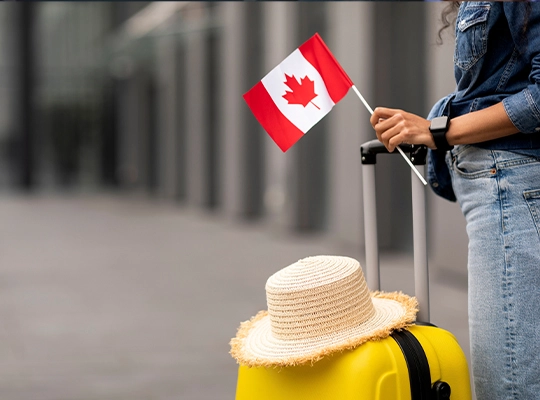



Thank you. Our representative will get in touch with you soon. Fingers crossed!
Explore More Permanant Residence
Permanant Residence
 Express Entry
Express Entry
 Provincial Nominee Programs
Provincial Nominee Programs
 Atlantic Immigration Program
Atlantic Immigration Program
 Quebec Immigration Program
Quebec Immigration Program
 Family Sponsorship
Family Sponsorship
 Citizenship Program
Citizenship Program
 Pilot Programs
Pilot Programs
Canada aims to welcome 395,000 new permanent residents in 2025, and 380,000 in 2026
Australia will aim to welcome 190,000 permanent migrants in the 2023-24 year
You might be considered inadmissible for varying reasons.
Expats may be deemed inadmissible by the concerned authorities in Canada. Subsequently, they might be denied entry to the country, or the decision may impact the PR application.
It would be disheartening when the Canadian immigration authorities, like the IRCC, considered you inadmissible to the country. Your entry may be denied, or your PR application may be rejected if you are suspected of being involved in unlawful activities, have some specific medical conditions, or are found to have submitted a misrepresentation.
The two types of inadmissibility to Canada are:
Denying Entry:
The foreigner applying for immigration to Canada may be denied entry. Criminal background, medical conditions, security risk if the person immigrates, and misrepresentation are the common reasons for this inadmissibility to Canada.
Inadmissibility on PR Application:
The PR applications of ex-pats in Canada may be rejected due to criminal, medical, or misrepresentation issues. Failure by the individual to maintain the residency obligation can also land you in trouble.
The common reasons for inadmissibility to Canada are:
A capable Canadian immigration lawyer with expertise in these matters might be able to help you. The Canadian immigration lawyer will study the scenario, suggest you the way out, and file the necessary request accordingly.
Criminal Inadmissibility:
In the case of a deemed rehabilitation in which more than ten years have passed, and the applicant has committed a non-serious crime or a criminal rehabilitation case in which more than five years have passed, the case can be resolved by submitting the necessary requests. If the applicant succeeds in justifying his or her position, he or she will be granted a temporary waiver (TRP). The ex-pat can obtain a visitor visa, study permit, or work permit in Canada accordingly.
Medical Inadmissibility:
A Procedural Fairness Letter (PFL) is the key here. The PFL is issued by IRCC after a medical exam. A response from the applicant substantiating the conditions is necessary for overcoming the medical inadmissibility. PFL is a basic necessity, and no action can be taken before the receipt of PFL.
Misrepresentation:
The applicant challenges the misrepresentation's inadmissibility in Canada. A strong response to the PFL can be made in this regard. Canadian applicants can seek judicial review within 15 days of inadmissibility. Applicants from outside Canada have 60 days to file a judicial review.
Medical Inadmissibility issued on TRV Visitor Visa/Super Visa:
The applicant can re-apply with the help of an expert Canadian immigration lawyer. The subsequent actions when medical inadmissibility is issued on a TRV or super visa will depend on the scenario.
The above-mentioned are some of the common inadmissibility in Canada. Other types of inadmissibility to Canada will be analyzed by our experienced Canadian immigration lawyers, who will offer you the best solutions. For assistance in overcoming any type of inadmissibility to Canada and suggestions in this regard, contact us now.
The procedure for overcoming inadmissibility to Canada will depend on the reason for inadmissibility. Reaching out to an experienced Canadian immigration lawyer is the best way to overcome the inadmissibility.
The common reasons for inadmissibility to Canada are criminal background, medical conditions, misrepresentation, membership in or linked to organized crime, security threats, and human rights violations.
The action to take when the immigration authority in Canada states one person is inadmissible is to reach out to an experienced Canadian immigration lawyer who will be able to help resolve the issue and overcome inadmissibility.
Yes, human rights violations can be a reason for inadmissibility to Canada.
Contact us for your immigration application assistance. Forget all your concerns when we are with you.






65282d392bc44.webp)




 CANADA
CANADA  +1 (647) 767-0672
+1 (647) 767-0672 INDIA
INDIA